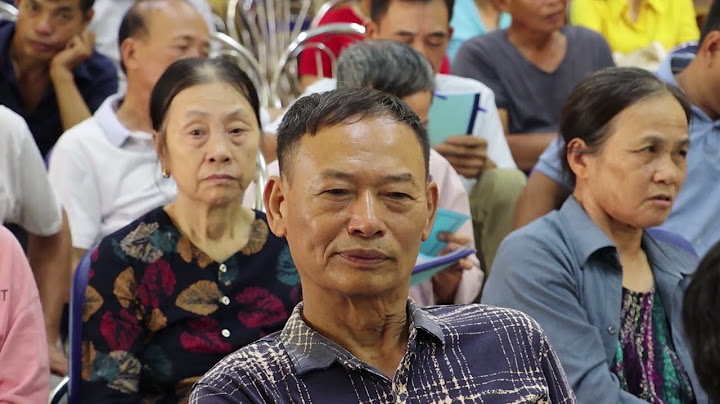The film tells the harrowing story of the imprisonment of three militants, including future president José Mujica, during Uruguay’s military dictatorship in the 1970s. Show A Twelve-Year Night, based on the book Prison Memoirs (Memorias del Calabozo, 1987) by ex-Tupamaros guerrillas Mauricio Rosencof and Eleuterio Fernández Huidobro, is a poignant excursion into the harrowing experiences of imprisonment and resistance under the Uruguayan dictatorship which lasted from 1973 to 1985 (the twelve years referenced in the film’s title). Following the self-coup committed by President Juan María Bordaberry on 27 June 1973, the military regime supressed the Tupamaros and any other form of political dissent or organised Left. The Tupamaros National Liberation Movement of Uruguay of the 1960s and 1970s arose in response to rising poverty – especially in rural areas – mass unemployment, inequality and government corruption. The self-coup d’état by Bordaberry, and an immediate state declaration of internal war against the Tupamaros, led to the murder, torture, disappearance and jailing of many social activists and trade union leaders. The film follows three Tupamaros in this context, Eleuterio Fernández Huidobro (Alfonso Tort), Mauricio Rosencof (Chino Darín) and José ‘Pepe’ Mujica (Antonio de la Torre), as they are taken hostage by the military forces and thrown into separate barren cells. Although Mujica may seem like a central point of interest, as he made the journey from guerrilla-fighter to the country’s president, the film provides an emotional and reflexive exploration of solitary confinement from three different perspectives. The primary depiction is that of Mauricio Rosencof, a journalist and poet who has been separated from his family and deprived of pen and paper. Superbly acted by Chino Darín, he embodies both the physical and psychological struggle of their imprisonment: the beatings, humiliation and the absence of light. The despair of not being able to talk or write, to only imagine, while his father doesn’t physically recognise him, paints a dark portrait of the psychological torture being applied in these situations. Nevertheless, through Carlos Catalán’s stylised cinematography, their collective confinement is conjured through poetic imagery as they resist succumbing to darkness while retaining a glimmer of hope. The visuality of this struggle suggests, as well, that this suffering and resistance extends beyond the confines of their solitary confinement and represents a microcosm of a wider national struggle for freedom. Director Álvaro Brechner also makes good use of the subjective flashback, a recalling of the past that’s rooted in the characters’ present psychological state, as their repressed feelings of hope and yearning for home are expressed through dreamlike sequences. The most impressive sequence shows how Mujica’s auditory hallucinations begin to meld into his own memory, as the flashback recalls his armed confrontation with police in 1970, an experience that left him with six gunshot wounds. Some critics have underlined the subjective and loose treatment of torture as potentially problematic. From the beginning, the film sets out to focus on the psychological ramifications of their imprisonment and torture, yet at times the aesthetic montage of these moments does soften the excessive violence. In terms of soundtrack, the decision to include a cover of Simon and Garfunkel’s ‘Sound of Silence’ at a central point in the film, instead of a native Uruguayan song, seems misplaced. For instance, Alfredo Zitarrosa’s ‘El Violín de Becho’ or ‘Adagio en Mi País‘ would have worked equally as well, potentially evoking a superior emotional response. These decisions may have been taken to appeal to European audiences, but, ultimately, those aspects don’t detract from the film’s over-arching narrative effectiveness and compelling thematic exploration of a historically relevant period of Uruguayan history. The portrayal and recognition of the brutality applied by the Uruguayan dictatorship between 1973 and 1985 remain central to the formation of not only a Uruguayan historical memory but also a Latin American one. These regimes, like others involved in the continent-wide Operación Condor (Operation Condor), need to be denounced in the present as much as they were in the past. Operation Condor was a US-backed campaign of political repression and state terror involving intelligence operations, torture and assassination of opponents. It was implemented in 1975 by rightwing dictatorships across South America. Regarding the crimes of the Uruguayan dictatorship, justice has been served in some cases, such as the 25-year sentence given to General Gregorio Conrado Álvarez and the 30 years given to ex-president Juan María Bordaberry over their involvement in murder during the dictatorship. While presenting a new side to the dictatorship’s repression, A Twelve-Year Night also contributes to further exposing past atrocities committed in Uruguay. A Twelve-Year Night (La Noche de 12 Años: directed by Álvaro Brechner, Uruguay, 2018) Where to watch: Netflix Trailer Other recommendations: – El Pepe: A Supreme Life (Dir. Emir Kusturica, 2020, 74 mins) – State of Siege (Dir. Costa-Gavras, 1973, 121 mins) – Documentary about Tupamaros (Dirs. Rainer Hoffmann y Heidi Specogna, 1997) Watch here – Interview with José Mujica (Film – Human by Yann Arthus-Bertrand, 2015) Watch here Ricardo Diaz-Cuffin is a freelance writer specialising in politics, culture and public health based in Cambridge, UK. Twitter: @R_DiazCuffin Simon Diaz-Cuffin is a documentary filmmaker and researcher. Twitter: @SimonDiazCuffin Is it worth watching a Twelve Year Night?This movie is outstanding! Carefully documented, it reconstitutes the confinement, the total isolation, the abuse of all kinds that endured three political prisoners of the Tupamaros movement, during twelve long years, knowing that the military dictatorship of the Uruguay began with the coup of June 27, 1973. What is the movie 12 year night about?Before becoming president of Uruguay, José Mujica fights to survive 12 years of solitary confinement and torture alongside other political prisoners.A Twelve-Year Night / Film synopsisnull What is the theme of the Twelve Year Night?Based on a true story, it shows how three men were gradually dispossessed of everything that made them individuals over 12 years. They endured a physical and mental process designed to drive them insane with the ultimate goal of destroying any resistance within their deepest selves. What awards did a 12 year night win?Awards. A Twelve-Year Night won the Golden Pyramid Award at the 40th Cairo International Film Festival on 29 November 2018. The film received six nominations for the 6th Platino Awards, including Best Ibero-American Film and Best Director. |





















